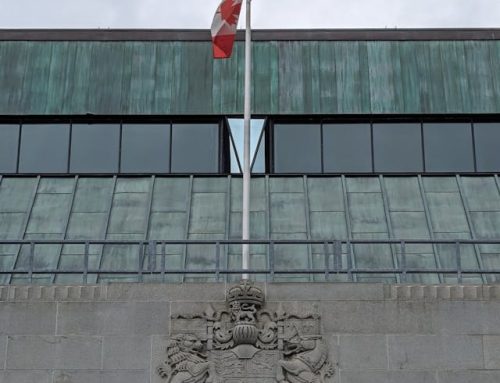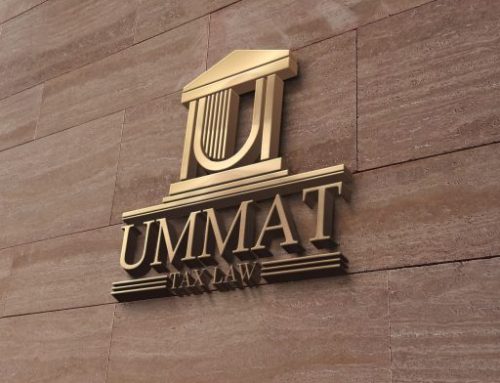Corporations Must be Represented by a Lawyer in Tax Court of Canada
Canada v. BCS Group Business Services Inc. 2020 FCA 205
Summary
The Crown successfully appealed a Tax Court of Canada (“TCC”) decision allowing a shareholder and director to represent a corporation at hearing.
Background
This is a long-awaited decision concretizing the Court’s position on a hitherto controversial interpretation of the provisions of the Tax Court of Canada Act[1] (“Act”). The underlying issue is whether a corporation can be represented by someone other than a lawyer in a general procedure hearing. The relevant provision is section 17.1 of the Act.
Many TCC decisions have rendered conflicting judgments on the matter, with some finding that a corporation must be represented by a lawyer, and with others finding that this strict requirement may not be applicable under certain circumstances.[2]
Mr. Denis Gagnon sought to represent his corporation BCS Group Business Services Inc. (“BCS”) in the TCC. As he is the sole shareholder, director and officer of BCS, the TCC granted Mr. Gagnon leave to do so.
The Minister appealed that decision to the Federal Court of Appeal (“FCA”). Mr. Gagnon was granted leave by the FCA to represent BCS in response to the Crown’s appeal.
Law
The relevant provisions from the Act and the Tax Court of Canada Rules(General Procedure) are as follows:
| Right to appear
17.1 (1) A party to a proceeding in respect of which this section applies may appear in person or be represented by counsel, but where the party wishes to be represented by counsel, only a person who is referred to in subsection (2) shall represent the party. 30 (2) Where a party to a proceeding is not an individual, that party shall be represented by counsel except with leave of the Court and on any conditions that it may determine.[3] |
Decision & Analysis
The Crown’s main argument was that a corporation is a legal fiction. It therefore cannot appear ‘in person’ in a literal sense and is thus required to rely on legal counsel in the TCC. Mr. Gagnon argued that section 17.1 should be interpreted as enabling the corporation as of right to appear “in person” through its director or sole shareholder.[4]
The Court interpreted the “in person” term contained in section 17.1 of the Act.
In examining the legislative history of the relevant provisions, along with a review of other statutes, the FCA found that a purposive interpretation of those provisions results in the conclusion that corporations can only be represented by counsel.
Takeaway
At paragraph 3, the Court states the following:
Before proceeding with the interpretation of section 17.1 of the Act, it is important to state that it is not the role of this Court to change the authentic meaning of legislation, properly interpreted. We are not to envisage what the best policy might be, or examine our own personal preferences about who should represent corporations before the TCC in a proceeding subject to the General Procedure. Instead, our task is to interpret legislation following the accepted method set out by the Supreme Court of Canada and call it as it is. If the authentic meaning of legislation is bad in policy terms, it is for the legislator to change the legislation. The Court must apply the authentic meaning of the legislation.
This is an interesting point. It reiterates a point made by Justice Stratas in Canada v. Cheema.[5] In that decision, the FCA rejected the notion that Courts should strive for a sensible, practical and common-sense result when interpreting legislation.[6] Justice Stratas indicated that Judges do not have the right to avert their eyes from the authentic meaning of legislation enacted by the elected. This strongly supports a litigant’s position where a dispassionate and objective reading of legislation conflicts with what one would ordinarily believe to be a common-sense reading of that very legislation.
by Amit Ummat
[1] R.S.C., 1985, c. T-2
[2] Please see Masa Sushi Japanese Restaurant Inc. et al. v. The Queen 2017 TCC 239; Suchocki Accounting Ltd. v. The Queen 2018 TCC 88; Sutlej Foods Inc. v. The Queen 2019 TCC 20 and in Groupe Nepveu Inc. v. the Queen 2020 TCC 80.
[3] Tax Court of Canada Rules (General Procedure) SOR/90-688a
[4] Canada v. BCS Group Business Services Inc. 2020 FCA 205 (“BCS”), at para. 5.
[5] 2018 FCA 45 (“Cheema”).
[6] Cheema, paras. 77-79.




